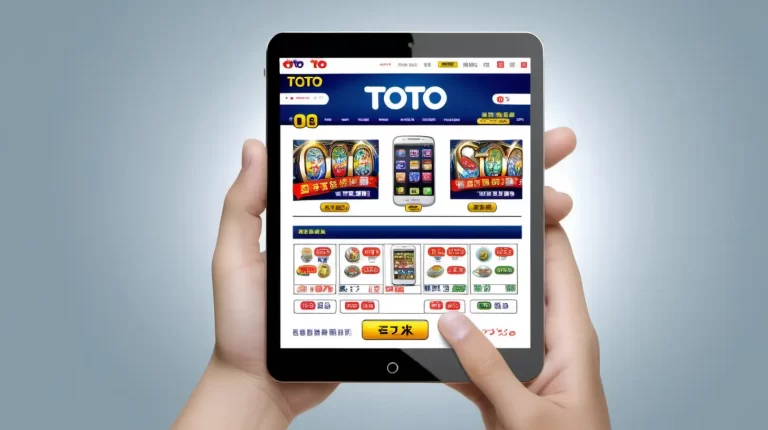The Environmental Impact of TOTO and How to Mitigate It

TOTO, a beloved form of sports betting, has transcended geographical boundaries to become a global phenomenon. From Singapore to South Korea, and beyond, enthusiasts eagerly participate in predicting match outcomes across various sports. The allure of TOTO lies not only in the thrill of competition but also in the potential rewards it offers. However, amidst the excitement, there exists a less visible aspect—its environmental impact. In this article, we delve deep into the ecological footprint of TOTO betting, examining its energy consumption, carbon emissions, water usage, waste generation, and deforestation. Furthermore, we explore innovative strategies and sustainable practices to mitigate these environmental repercussions, paving the way for a more eco-conscious approach to sports betting.
Understanding TOTO Betting:
TOTO betting traces its origins back to Singapore, where it emerged as a popular form of gambling in the 1960s. The concept is simple yet enticing—participants predict the outcomes of matches from various sports, ranging from soccer and basketball to horse racing and beyond. These predictions are then compiled into betting pools, with participants placing their bets in hopes of winning substantial prizes. TOTO’s widespread appeal lies in its accessibility and potential for lucrative payouts, attracting a diverse range of participants, from casual bettors to seasoned punters.
Energy Consumption in TOTO Operations:
One of the primary environmental concerns associated with TOTO betting is its significant energy consumption. The infrastructure supporting online betting platforms, including servers, data centers, and network equipment, requires substantial amounts of electricity to operate efficiently. Moreover, the processing power needed for real-time odds calculation, transaction processing, and data storage further adds to the energy demand. As the popularity of online TOTO betting continues to rise, so too does its energy footprint, underscoring the need for sustainable solutions to reduce energy consumption and mitigate environmental impact.
Impact of Paper-based TOTO Tickets:
While online betting has become increasingly prevalent, paper-based TOTO tickets remain a significant contributor to environmental degradation. The production of paper tickets entails the consumption of valuable resources, including trees, water, and energy. Furthermore, the disposal of used tickets exacerbates the environmental impact, as they often end up in landfills, contributing to waste accumulation. Despite advancements in digital ticketing systems, paper-based TOTO tickets persist, highlighting the importance of transitioning to more sustainable alternatives.
Carbon Emissions from TOTO Activities:
The transportation involved in distributing paper tickets to retailers and collecting them post-event results in significant carbon emissions. Whether it’s the delivery trucks transporting ticket booklets or individuals driving to purchase tickets from physical outlets, each step in the TOTO process contributes to the carbon footprint. Additionally, online betting platforms also emit carbon due to their server operations, data processing, and energy consumption. Addressing carbon emissions from TOTO activities requires a multifaceted approach, encompassing transportation optimization, energy efficiency measures, and renewable energy adoption.
Water Usage and TOTO Betting:
Water, a finite and precious resource, is indirectly impacted by TOTO betting through various channels. The production of paper tickets requires water, particularly in the papermaking process, where it is used for pulp processing and paper formation. Moreover, the energy generation needed to power TOTO operations often relies on water-intensive methods such as hydroelectric power. Thus, reducing energy consumption in TOTO activities can indirectly conserve water resources, highlighting the interconnectedness of environmental issues and the importance of holistic solutions.
Deforestation and Paper Production:
The demand for paper tickets in TOTO betting can drive deforestation, especially if not sourced sustainably. Clearing forests for timber to produce paper contributes to habitat destruction, loss of biodiversity, and disruption of ecosystem services. Furthermore, unsustainable logging practices exacerbate soil erosion, water pollution, and carbon emissions, further intensifying the environmental impact. Embracing digital ticketing systems and promoting sustainable forestry practices can alleviate the pressure on forests and reduce the environmental footprint associated with paper production.
Waste Management Challenges:
Another critical aspect of TOTO’s environmental impact relates to waste management. Discarded paper tickets, whether disposed of by individuals or retailers, contribute to solid waste accumulation, posing environmental and public health risks. Proper waste management practices, such as recycling and promoting digital ticketing, can mitigate the environmental burden associated with TOTO betting. Additionally, initiatives aimed at reducing paper usage and promoting sustainable packaging can further minimize waste generation and promote a circular economy approach.
Promoting Sustainable Betting Practices:
To mitigate the environmental impact of TOTO betting, promoting sustainable betting practices is imperative. This involves raising awareness among participants about the ecological consequences of their betting activities and encouraging environmentally friendly alternatives. Betting operators can play a pivotal role by adopting sustainable practices in their operations, such as optimizing energy usage, implementing paperless transactions, and promoting responsible gambling. Furthermore, regulatory authorities can incentivize eco-friendly initiatives through policy interventions and industry standards, fostering a culture of sustainability within the betting industry.
Leveraging Technology for Eco-friendly Solutions:
Technology offers promising solutions to reduce the environmental footprint of TOTO betting. Innovations such as blockchain technology can enhance transparency and accountability in betting transactions while minimizing the need for intermediary infrastructure. Furthermore, leveraging renewable energy sources, such as solar and wind power, to power online betting platforms can significantly reduce carbon emissions associated with TOTO operations. Embracing digitalization, automation, and data analytics can also streamline operations, optimize resource utilization, and minimize environmental impact.
Educating Stakeholders for Long-term Sustainability:

Education and advocacy are essential for fostering long-term sustainability in TOTO betting. By educating stakeholders, including betting operators, participants, and regulatory authorities, about the environmental implications of their actions, we can collectively work towards minimizing ecological harm. Additionally, incentivizing eco-friendly practices through rewards, recognition, and certification programs can further encourage positive behavioral change. Furthermore, fostering partnerships between the betting industry, environmental organizations, and academic institutions can facilitate knowledge sharing, research collaboration, and the development of innovative solutions.
TOTO betting, while offering entertainment and potential rewards, also poses significant environmental challenges. From energy consumption and carbon emissions to water usage and deforestation, the ecological footprint of TOTO is undeniable. However, through awareness, innovation, and collective action, we can mitigate these impacts and promote a more sustainable approach to sports betting. By adopting eco-friendly practices, embracing technological advancements, and fostering stakeholder engagement, we can ensure that TOTO betting becomes not only enjoyable but also environmentally responsible. Together, let us strive towards a future where entertainment and sustainability go hand in hand, creating a win-win scenario for both enthusiasts and the planet.







